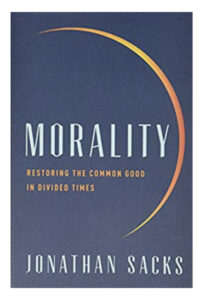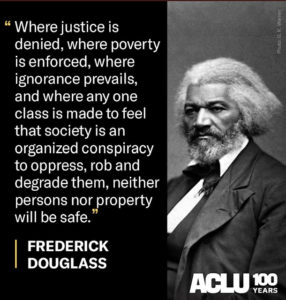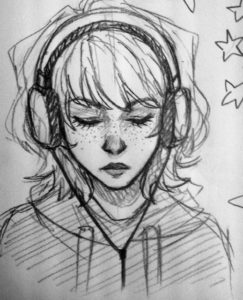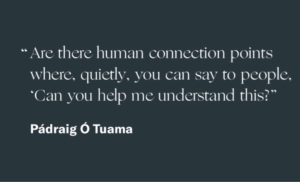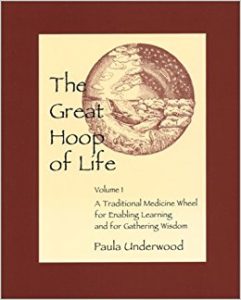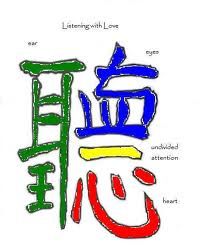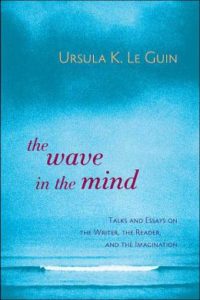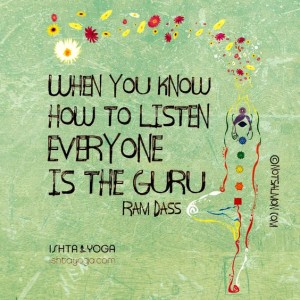Listening
“God is setting us a big challenge.”
November 14, 2020A celebrated moral thinker and renowned Judaic intellect, Rabbi Jonathan Sacks died last week at 72 from cancer.
“The greatest single antidote to violence is conversation, speaking our fears, listening to the fears of other—in that sharing of vulnerabilities, discovering a genesis of hope.”
When Krista Tippett, On Being, spoke with Lord Sacks in 2010, he modeled a life-giving, imagination-opening faithfulness to what some might see as contradictory callings: How to be true to one’s own convictions while also honoring the sacred and civilizational calling to shared life — indeed, to love the stranger?
Krista: You’ve made a statement. I think it’s audacious: “The greatest single antidote to violence is conversation, speaking our fears, listening to the fears of others, and in that sharing of vulnerabilities, discovering a genesis of hope.” Now as someone who conducts conversation for a living, I love that statement. I wonder how you know that to be true — that the antidote to violence is conversation.
Lord Sacks: Listening gives each of the two parties the feeling that they are heard, and once they’re heard, they can then begin to speak what they really feel. And then they can begin to realize that there are things they still care about in common.
Sometimes I think what would happen if we generated real conversations at the grassroots level between the people whose lives are really affected?
The real conflicts arise when our minds are focused on the past.
I think God is setting us a big challenge, a really big challenge. We are living so close to difference with such powers of destruction that he’s really giving us very little choice. You know, to quote that great line from W.H. Auden, “We must love one another or die.”
So I am full of hope as we face the greatest challenge humanity ever has.
Korby Lenker.
October 18, 2020
|
What could better look like?
February 20, 2020One thing leads to another.
-Judge J. Edward Lumbard
❦
America is not some finished work or failed project but an ongoing experiment.
If parts of the machine are broken, then the responsibility of citizens is to fix the machine, not throw it away.
Our imperfections can, and out to, draw us together in humility, realism, patience, and determination.
No one has a monopoly on wisdom or is free from error. Everyone benefits from understanding other points of view.
The foundational virtue of democracy is trust, not trust in one’s own rectitude or opinion, but rust in the capacity of collective deliberation to move us forward.
To often we define our real national challenges–climate change, immigration, health care, guns–in a way that guarantees division into warring camps.
Instead we should be asking one another: What could “better” look like?
Our Founders thought in centuries.
Abraham Lincoln warned that the greater danger to the nation came from within. All the armies of the world could not crush us, he maintained, but we could still “die by suicide.”
-James Mattis, a former secretary of defense who served for more than four decades as a Marine infantry officer.
George Washington:
“Sooner or later the chief of some prevailing faction, more able or more fortunate than his competitors, turns disposition to the purposes of his own elevation on the ruins of public liberty.”
If we want our democracy to succeed, indeed, if we want the idea of democracy to regain respect in an age when dissatisfaction with democracies is rising, we’ll need to understand the many ways in which today’s [various] platforms create conditions that may be hostile to democracy’s success. And then we’ll have to take decisive action to improve.
-Social Psychologist Jonathan Haidt and technoethicist Tobias Rose-Stockwell
Keep listening.
January 17, 2020When someone disagrees with you today, stay present, listen, and then let them solve the problem.
Problems are transformed when we are present.
-Judith Hanson Lasater, PhD
“By contemplation, we mean the deliberate seeking of God through a willingness to detach from the passing self, the tyranny of emotions, the addiction to self-image, and the false promises of the world. Action, as we are using the word, means a decisive commitment toward involvement and engagement in the social order. Issues will not be resolved by mere reflection, discussion, or even prayer, nor will they be resolved only by protests, boycotts, or even, unfortunately by voting the “right” way. Rather, God “works together with” all those who love (see Romans 8:28).”
The only way out and through—for either side of any dualism, including that between action and contemplation—is a kind of universal forgiveness of Reality for being what it is; it thus becomes the bonding glue of grace which heals all the separations which law, religion, or logic can never finally or fully restore.
-Fr. Richard Rohr
A Country’s Lens
December 18, 2019Perspective is the beginning of freedom.
So much of our suffering is caused by the lack of perspective.
Think of an argument you had recently.
Take out a piece of paper and write down the argument from the other person’s point of view.
Hold as precious this new perspective.
♡
Ignorance. Not stupidity. Fear. Not hate. “Finger pointing leaves our electorate on edge. Empathy is the key to finding common ground. There is palpable fear in the air. We need to find a way to raise our voices and listen with our hearts.” -Dan Rather
In the Shelter
April 13, 2019-Poet and theologian, Pádraig Ó Tuama’s work centres around themes of language, religion, conflict and art.
Three Times Listen
January 23, 2018‘If you want to be truly understood, you need to say everything three times, in three different ways. Once for each ear…and once for the heart.’
-Paula Underwood Spencer
☾
‘I’ve learned that true dialogue requires both speaker and listener to try several times to get at what matters. So much depends on timing, and so, I’ve learned not to repeat myself, but to play what matters like a timeless melody, again and again, if the one before me is honest and sincere.’
-Mark Nepo
Listening between the lines.
July 28, 2017“Words are events, they do things, change things. They transform both speaker and hearer; they feed energy back and forth and amplify it. They feed understanding or emotion back and forth and amplify it.”
-Ursula K. Le Guin
Maria Popova/Brainpickings
But the magic of human communication, Le Guin observes, is that something other than mere information is being transmitted — something more intangible yet more real:
In most cases of people actually talking to one another, human communication cannot be reduced to information. The message not only involves, it is, a relationship between speaker and hearer. The medium in which the message is embedded is immensely complex, infinitely more than a code: it is a language, a function of a society, a culture, in which the language, the speaker, and the hearer are all embedded.
Paralleling Hannah Arendt’s assertion that “nothing and nobody exists in this world whose very being does not presuppose a spectator,” Le Guin points out that all speech invariably presupposes a listener:
In human conversation, in live, actual communication between or among human beings, everything “transmitted” — everything said — is shaped as it is spoken by actual or anticipated response.
Live, face-to-face human communication is intersubjective. Intersubjectivity involves a great deal more than the machine-mediated type of stimulus-response currently called “interactive.” It is not stimulus-response at all, not a mechanical alternation of precoded sending and receiving. Intersubjectivity is mutual. It is a continuous interchange between two consciousnesses. Instead of an alternation of roles between box A and box B, between active subject and passive object, it is a continuous intersubjectivity that goes both ways all the time.
Listening is not a reaction, it is a connection. Listening to a conversation or a story, we don’t so much respond as join in — become part of the action.
[…]
When you can and do entrain, you are synchronising with the people you’re talking with, physically getting in time and tune with them. No wonder speech is so strong a bond, so powerful in forming community.
[…]
The living response has enabled that voice to speak. Teller and listener, each fulfills the other’s expectations. The living tongue that tells the word, the living ear that hears it, bind and bond us in the communion we long for in the silence of our inner solitude.
Minding the gap.
October 27, 2016(Photo: San Juan’s Lopez Island, Washington, October 2016)
‘Because the space between what we intend and what we do is often great, we keep beginning. Because the gap between what we feel and what we say is often surprising, we keep trying. Because the field between what we experience and what we understand is so vast, we keep growing.’
︶⁀°• •° ⁀︶
So often we refuse to listen, we become obsessed with remaking the world in our own image, rather than opening the spirit of what is. At the deepest level, ours is not to make ourselves heard but to be still enough to hear. As the Native American Elder Sa’k’ej Henderson says, “To truly listen is to risk being changed forever.”’
-Mark Nepo
‘…stop making, stop doing, stop thinking…and just listen…’
